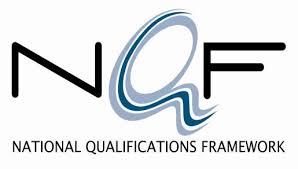The South African Qualifications Authority (SAQA) says there is more to the National Qualifications Framework (NQF) Amendment Act than just criminalising qualifications fraud.
The legislation tightens the legal requirements and strengthens the hands of NQF bodies to inspire confidence in the education and training system, SA Government News reported.
Skills development providers now need to be registered by the Department of Higher Education and Training, which was not the case in the NQF Act of 2008.
Private providers are also required to be registered.
“The Amendment Act also brings with it some new and revised definitions aimed at strengthening the legislation so that there is effective implementation of the NQF. For instance, it introduces the definition of authenticity concerning a national and foreign qualification and part-qualification,” SAQA outlined.
An authentic national or South African qualification, or part-qualification must be registered on the NQF, offered by a registered and accredited education institution or skills development provider, and be lawfully obtained.
On the other hand, an authentic foreign qualification or part-qualification must be lawfully obtained from a foreign country and evaluated by SAQA.
The NQF Amendment Act further gives SAQA the legal responsibility to verify all national qualifications and part-qualifications.
Employers, government departments, education and training institutions (both public and private), and professional bodies must first check if their employees or members’ qualifications are registered on the NQF.
“If the qualifications are not registered, they can refer them to SAQA for verification. Similarly, South Africans and foreign nationals who have obtained qualifications and part-qualifications from other countries must also have their qualifications and part-qualifications verified and evaluated by SAQA,” the organisation said.

SAQA has warned that education institutions and skills development providers that are not registered or accredited or offer qualifications and part-qualifications not registered on the NQF, will face closure.
Such institutions may also be declared unfit to apply for registration for a period not exceeding 10 years, and those found guilty of qualifications fraud, will be liable to a fine or imprisonment for a period not exceeding five years, or to both a fine and such imprisonment.
“South Africa needs an effective education and training system where the movement between general and further education, higher education as well as occupational qualifications and the world of work is seamless,” SAQA said.

Furthermore, the NQF Amendment Act amplifies the role of the National Learners’ Records Database (NLRD) to include a separate register for professional designations.
The NLRD will also have records of qualification and part-qualification requirements and other related information, including details of education institutions and Quality Councils that awarded the qualifications and part-qualifications.
While the NQF Amendment Act was signed and published for general information, it will only come into effect on a date that will be determined by the President. – SAnews.gov.za










